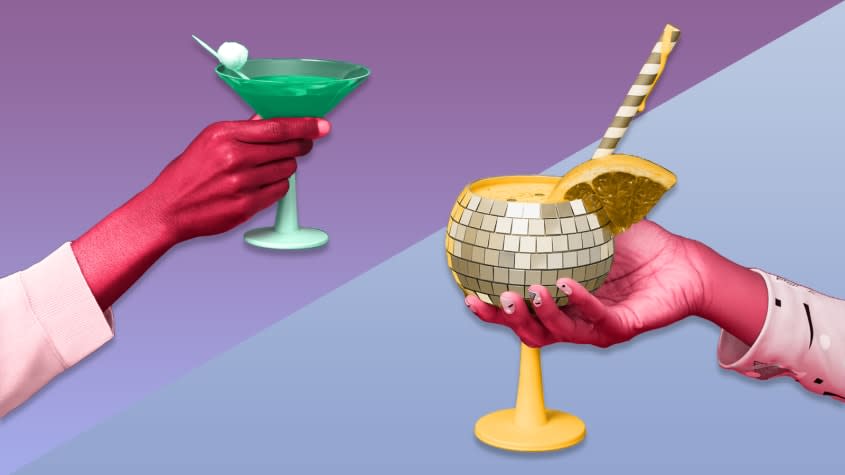Did Dry January accomplish anything?

A growing number of Americans gave Dry January a try this year, abstaining from alcohol in the first month of the year. Participation in the annual sobriety ritual has risen steadily since the non-profit Alcohol Change UK started it 10 years ago. More than twice as many people tried to go the month without alcohol, or with very little, this year than did in 2020. By some estimates, 1 in 5 Americans of drinking age — or more — gave Dry January a try this year.
This year, the campaign came against a backdrop of a surge in drinking during the coronavirus pandemic. U.S. Bureau of Economic Analysis data indicates that November spending on alcoholic beverages was 3 percent higher than the previous year and 15 percent higher than the period right before the pandemic. Richard Piper, the CEO of Alcohol Change UK, told The Washington Post that the "objective of Dry January is not long-term sobriety — it's long-term control." Some people say they took the challenge hoping that cutting alcohol consumption would make them sleep and feel better. Others just wanted to see if they could do it. Did Dry January have any impact on Americans' relationship with alcohol?
It's worth abstaining to remind yourself it's possible
As her first Dry January comes to a close, says Robin Abcarian in the Los Angeles Times, "I am happy to report — as if you didn't already know — that it's possible to stop drinking even when you think you can't." For many of us, drinking has become a "mindless habit" that "interferes with a good night's sleep." Dry January is a reminder that we don't have to drink. We "choose to." And, at least those not fighting addiction, can choose to stop.
Abcarian's full disclosure: It was really a "semiarid January," broken up by wine with a niece one night, and a "couple of vodkas" a few nights later before bed, after which "I felt so lousy the next morning that it was clear why I stopped in the first place." The monthlong sobriety experiment didn't provide any "major revelations, "except that I sleep so much better without alcohol. Oh, and that it's entirely possible" do things that once seemed impossible. "Which, come to think of it, is pretty huge."
The loss of the ritual hurts
For her "damp January," "I've been sober as a nun" at home in the U.K. "with two gin and tonic-soaked nights in Cameroon (long story)," says Cathy Adams in the London Times. "So why do I feel so... awful?" It's not that I found it "boring and difficult." Having done it before, that was a given. "But as the month comes to an end, this enforced sobriety has triggered an existential tsunami I didn't see coming."
"As a working mother to a toddler," I have no "easy-off switch." I have "no clue how to decompress without a cocktail to celebrate my child having finally gone to bed." I miss the "sheer ritualism" of the nights out, the hiss of the air bubbles from a Prosecco bottle. So despite the promises that a dry month would yield "less anxiety and better sleep, I feel worse than I've felt for a long time: unstable, disorganized, emotionally adrift. I knew I liked wine, but I didn't realize how much of my emotional wellbeing derived from the grape."
Looking at your relationship with alcohol is one of many benefits
If Dry January made you ponder what you miss about your evening cocktail, it worked, says Lisa Jarvis in Bloomberg. "The biggest benefit of Dry January seems to be in forcing us all to reflect honestly on our relationship with alcohol: how often and how much we drink, our triggers for drinking more, and how alcohol might be affecting our day-to-day lives."
Emerging from the pandemic, it's important to "more deeply evaluate our habits." U.S. alcohol-related liver disease deaths "rose sharply in 2020," and a "worrisome trend in increased alcohol consumption among women" worsened that first pandemic year. Some people probably tried Dry January as a "feel-good hiatus," but experts in alcohol use disorder say "even that short break can matter for our health. Just a few weeks off from drinking can do wonders for repairing the liver, and can improve insulin resistance and blood pressure in even moderate drinkers. And people typically report tangible improvements to their daily lives, like sleeping better and losing weight."
This could be the start of a 'new Prohibition mindset'
There's no question more people are seeing the wisdom in giving Dry January a try, says Gus Carlson in The Globe and Mail. What started as a way for people to "give up drinking alcohol to atone for overindulging over the holidays" is blossoming into a modern temperance movement with power far beyond what it can do for individual drinkers.
Unlike the tobacco industry, which fought reports of smoking health risks and published ads urging people to walk "a mile for a Camel," the $88-billion-a-year U.S. beer, wine, and spirits industry "is engaging in a sort of 'if you can't beat 'em, join 'em' self-flagellation," "apologizing for, making fun of and otherwise undermining the appeal of their own core products" and pushing their non-alcoholic alternatives in a desperate attempt "to keep up with changing consumer tastes." "In the old days, you may have walked a mile for a Camel." If our "new Prohibition mindset" continues unopposed, "some day you may need to do the same for a cocktail."
You may also like
The Hogwarts Legacy boycott controversy, explained

